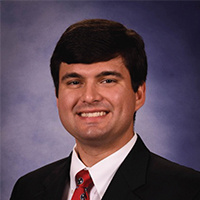Lone Mountain Estate Planning Lawyer, Tennessee
Includes: Gift Taxation
Matthew Janson McClanahan
✓ VERIFIEDAccident & Injury, Estate Planning, Litigation, Business, Criminal
Matthew is a proud native-born Tennessean and the third generation to live on my family’s farm. His roots trace back to his ancestor and the first g... (more)
Donald R. Coffey
Family Law, Workers' Compensation, Estate Planning, Real Estate
Status: In Good Standing
FREE CONSULTATION
CONTACTSteven K. Bowling
Wills & Probate, Estate Planning, Corporate, Business Organization
Status: In Good Standing
Robert Milton Burts
Federal Appellate Practice, Estate Planning, Family Law, Elder Law
Status: In Good Standing Licensed: 43 Years
Matthew Brandon Evans
Federal Appellate Practice, Estate Planning, Family Law, Administrative Law
Status: In Good Standing Licensed: 16 Years
Kelley Hinsley
Wills & Probate, Trusts, Estate Planning, Child Support
Status: In Good Standing Licensed: 51 Years
William Evan Anderson
Wills & Probate, Estate Planning, Elder Law, Business
Status: In Good Standing Licensed: 42 Years


